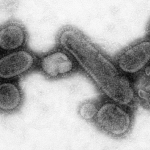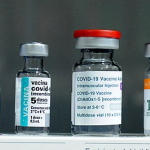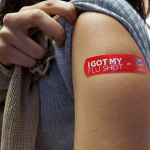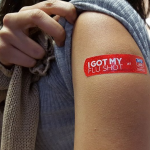The inconvenience of yearly flu shots prevents many people from getting them, while flu kills thousands of Americans annually. We need vaccines that will provide durable immunity and work against new variants. There is progress.
Disease
Why did so many people opt not to get COVID boosters? That is a significant public health question. A newly reported survey provides some answers.
A new study demonstrates an association between elevated blood levels of erythritol and an increasing risk of MACE – major adverse cardiovascular events – such as heart attack, stroke, heart failure, death, and the need for coronary revascularization. What the study and the researchers found was “lost in translation.” Let’s see for ourselves.
Contrary to a poorly researched Wall Street Journal commentary, the new COVID vaccines have been tested appropriately and, like their predecessors, will likely prevent serious illness, death, and undue stress on the U.S. healthcare system.
Why are some people fully protected by vaccination, or infection-acquired immunity to COVID, when others are not? Does the fault lie with the vaccines? Do some individuals mount a more robust immune response? A new study provides an answer that lies in between those choices and gives me a chance to write about the power and limitations of metaphors.
Another article in the ongoing war over the protective value of masks. The latest report, with senior author Vinay Prasad, effectively builds and demolishes a straw man of the authors’ creation, then does some out-of-season cherry-picking. In the end, the “study” sheds more shade than light.
An infection with Clostridioides difficile (or C. diff in the trade) that occurs 72 hours after admission to the hospital is considered hospital-acquired. Medicare penalizes hospitals financially if they have more hospital-acquired C. diff. infections than the national average. A new study suggests that C. diff is not so much hospital-acquired, but that patients bring the bacterium with them, in their gut microbiome, into the hospital. That makes it more transported than acquired.
Flu is a significant cause of morbidity and mortality every year. Flu vaccines are safe and effective, but far too many Americans decide to forgo them. The result is preventable illnesses and deaths. We must do better at encouraging flu vaccination.
Local surveillance of COVID-19 in wastewater (WW) is widespread and reported by the National Wastewater Surveillance System (NWSS). We previously used NWSS data to examine national trends and relationships in attempts at wastewater epidemiology (WWE). Now, we consider the consistency of geographic trends at scales ranging from local treatment plants in the five boroughs of New York City to statewide coverage.
A new study suggests that the antiviral Molnupiravir may “paradoxically” be driving COVID-19 mutations, creating variants of concern. What is going on? It is all about molnupiravir’s mode of action and evolution.
The media reports that colchicine, a very old drug, has now been discovered to reduce the risk of recurrent heart disease and has a new FDA indication. Of course, the “discovery” has taken 10 years, and the data for the FDA approval is from 2020. Just how helpful will colchicine be to you and me?
The process of selecting viruses for the yearly flu vaccines is complex and inexact. For the 2023-2024 flu season, there is reason to be optimistic that the vaccines will provide good protection.











